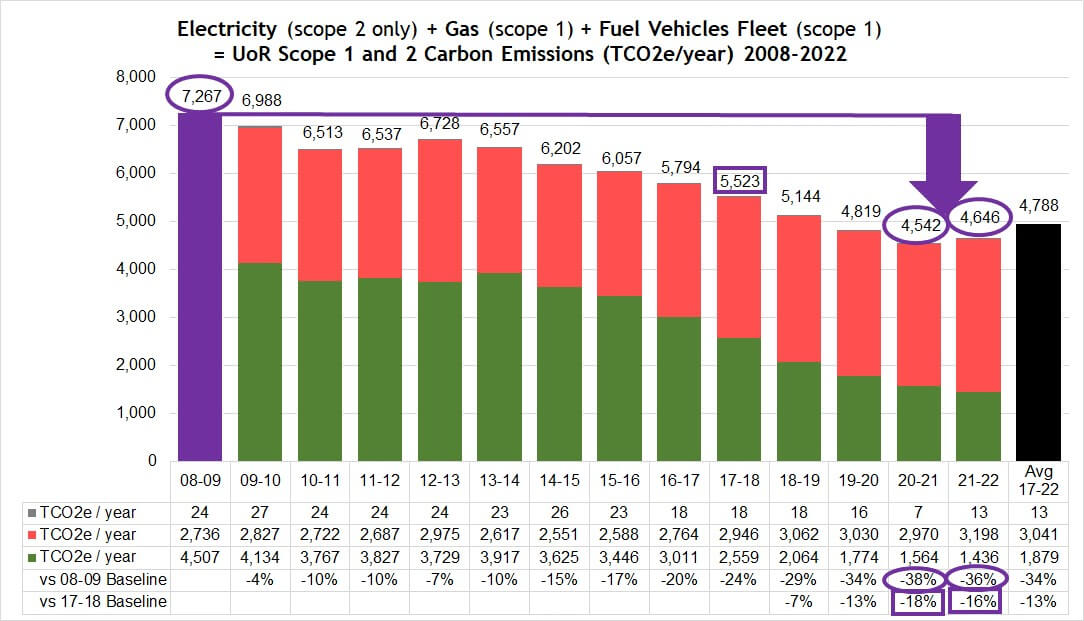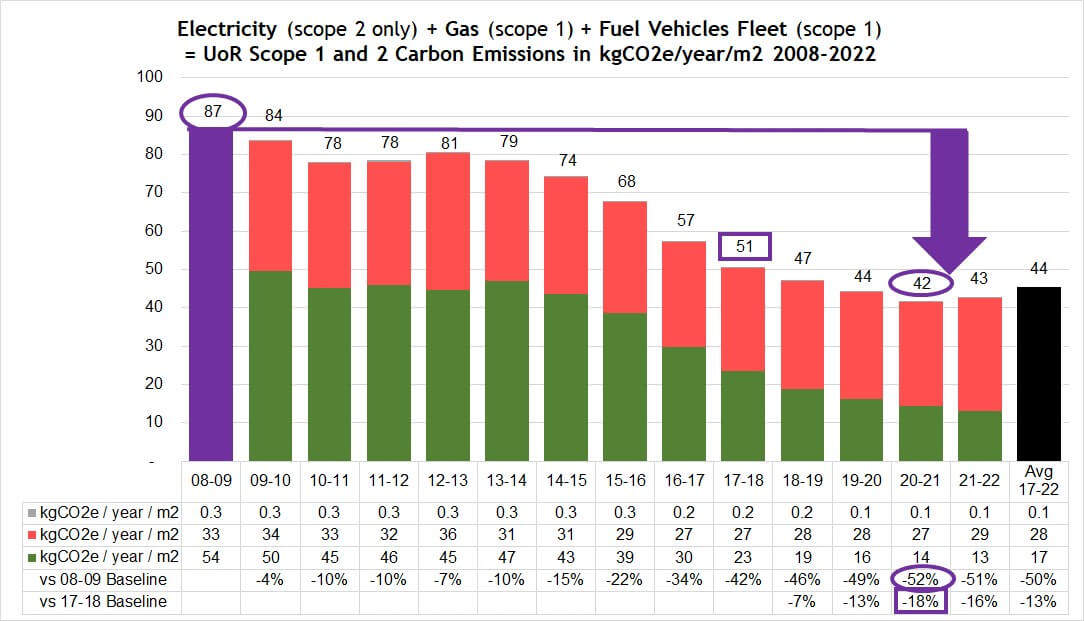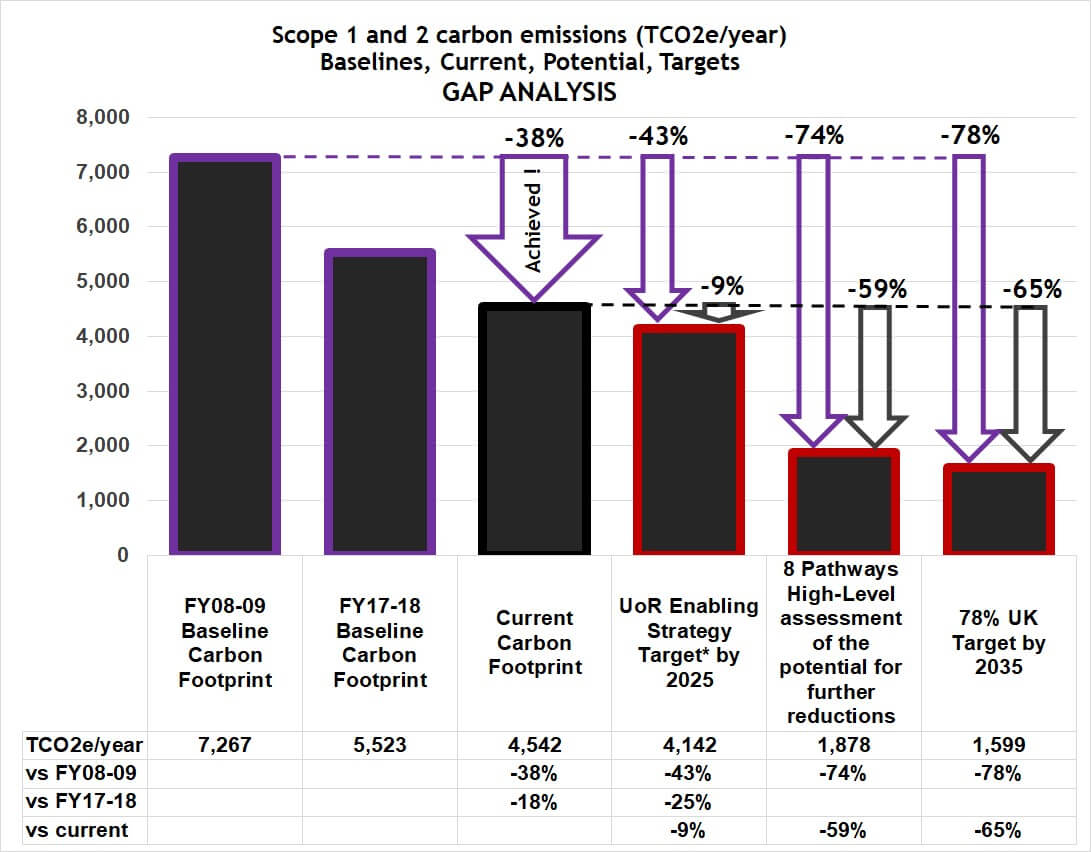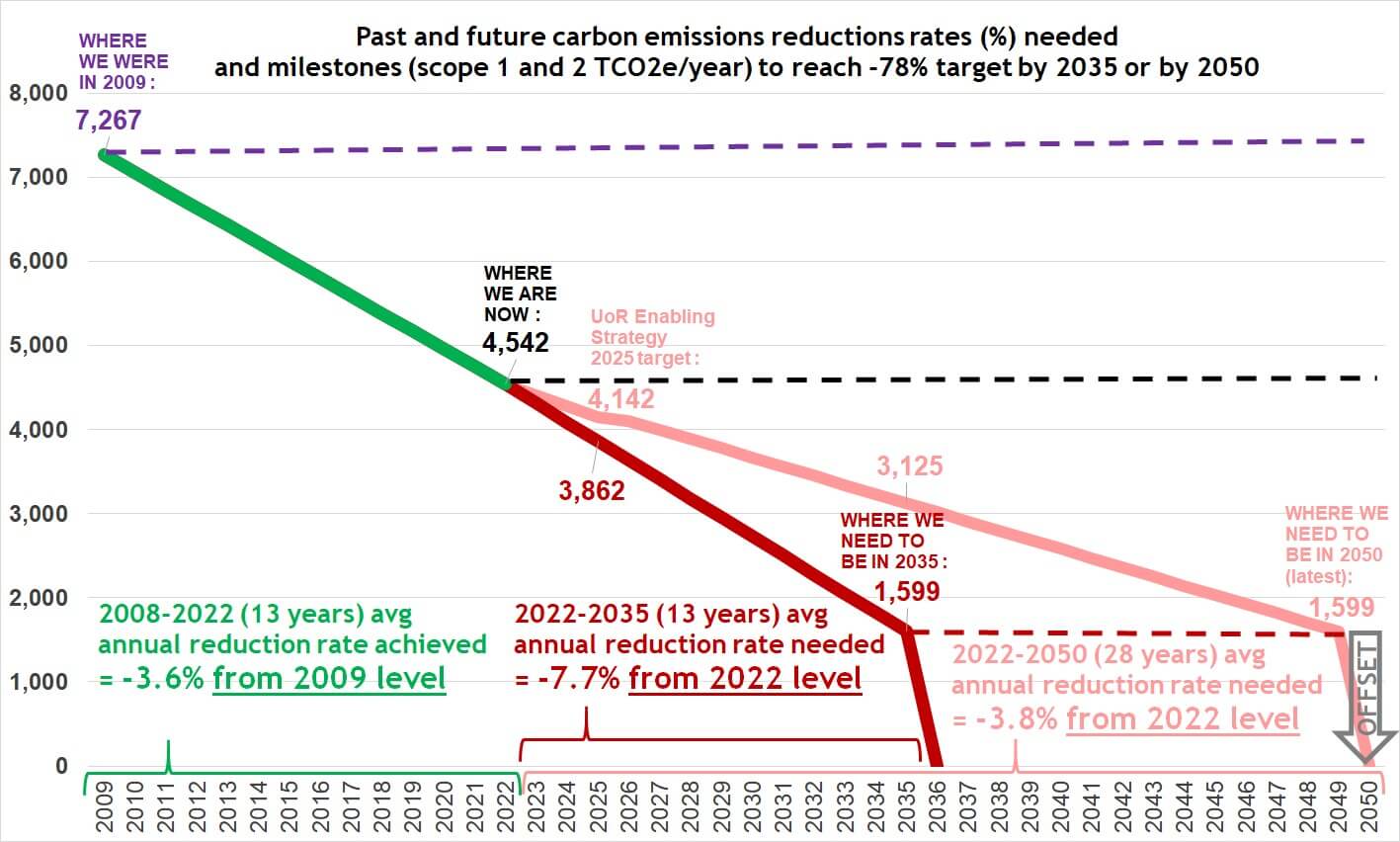The carbon management progress report provides an update on the achievements the University of Roehampton has made over the last decade as well as the remaining targets we hope to achieve. The text below provides a summary of the full report.
Report Summary
In 2011 the University approved our Carbon Management Plan with an ambitious objective to reduce its ‘scope 1 and 2’ carbon emissions by 40% by 2020 against a (now 2008) baseline year.
Did we achieve our target? Where were we then, where are we now, and where do we need to be as an education organisation to contribute mitigating the impacts of the Climate Emergency? How far are we from the UK Government legally binding target to slash emissions by 78% by 2035?
To answer these questions, the University’s Energy Manager has produced comprehensive analysis of UoR utilities usage, related costs and carbon emissions in the 14 years period 2008 – 2022 which are now publicly available into our Carbon Management Progress Report on our freshly updated webpages.
The Executive Summary provides the main outcomes whilst the body of the report is to disseminate more detailed data and analysis.
By publishing our journey and current position with carbon reduction, this report aim to assist the writing of the company’s Net Zero Carbon Strategy to 2050 and recognise the numerous benefits of energy management.
The keys take-away from the report are:
- In the last 13 years the University has invested a total of £3.4million in 61 projects with 5 to 10 years payback to reduce utilities usage, associated costs and carbon emissions.
- These projects save the equivalent of powering and heating 313 UK homes (5000 MWh/year), every single year.
- Energy Management is saving the University of Roehampton over half a million pounds in utilities every year which is valued with the current energy prices crisis at a whooping £1.3M p.a. This means, our energy bills, who used to be £1.8M pa before the energy crisis and currently expected to be £4M in the 2023-24 financial year, would be £5.3M should we have not ‘invested to save’.
- Thanks to our flexible energy purchasing strategy, adopted in 2014, we have been mostly ‘shielded’ from the current energy prices crisis until our current contracts ends Sept 2023, as 100% of our energy requirements were bought pre-crisis. Without this strategy, we would have been immediately impacted by an additional £6.5million in the 3 years 2020-2023 for electricity and gas.
- Thanks to our ‘invest to save’ projects the equivalent of 1018 tonnes of CO2 p.a. is not released into the atmosphere.
- These substantial results were achieved with only one Energy Manager.
- Our Scope 1 and 2 carbon emissions have reduced by an impressive 38% in absolute terms compare to our 2008-09 baseline year. That is despite a 31% increase in the Estates size in the same period (which has added +24% on utilities usage, costs and carbon emissions). We have therefore nearly reached our ambitious -40% by 2020 carbon reduction target set in our 2011 Carbon Management Plan.
- In relative terms (kgCO2e/year/m2), these carbon emissions are 52% lower and so our demanding target has been overachieved.
- Our 2021-22 carbon emissions per square meter are 18% lower than in the 2017-18 year meaning we are ‘on track’ to achieve our -25% by 2025 target set in our 2019 Enabling Strategies.
Our scope 1 and 2 carbon footprint:
- was 7,267 TCO2e/year in 08-09
- currently is 4,542 TCO2e/year (-38%)
- need to (and in theory can) reach ~1,600 TCO2e/year (-78%) to meet the UK Net Zero Target.
To effectively mitigate the environmental and financial impact of climate changes the challenge is however of size and we are up against time.
- Our -38% absolute reduction 2009-2022 (13 years) translate into an average reduction rate of -3.6% per year, from 2009 levels.
- With the inevitable exhaustion of ‘easier’ to implement carbon savings projects, it will become much harder in time to even just achieve a similar average reduction rate, to what we have already achieved.
- To achieve the -78% UK target and Net Zero by 2035 as set in the law, we need to further reduce at an average reduction rate of -7.7% per year, from 2022 levels, in just over a decade.
Report and summary author Manon Ray, Energy Manager & Communications Department.




